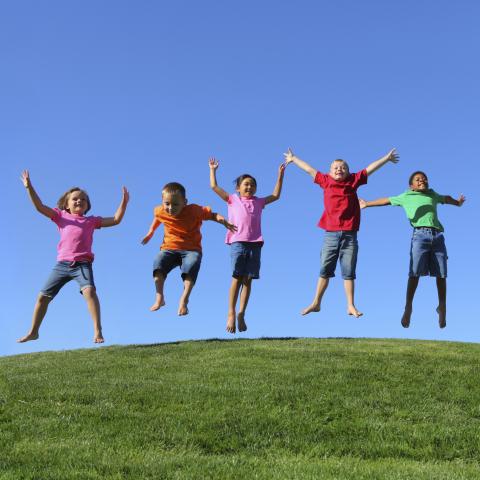On Children’s Day, South Korea is alight with fun activities, lots of foot traffic, and smiling children. In this article, you’ll learn all about this festive Korean holiday and pick up some new vocabulary along the way.
Let’s get started.
1. What is Children’s Day in Korea?
Let’s begin with a little bit of Children’s Day history.
In the past, people had little concern over children’s rights or their place in society, which led to many Koreans foregoing a happy childhood. The novelist Bang Jeong-hwan saw this, and sought to create positive change in children’s lives. Thus, he worked to put together several organizations to help improve children’s lives and promote their rights. These organizations include The Rainbow Society and Cheondogyo Children’s Association.
Eventually, in 1923, Korea made Children’s Day an official holiday. During the Japanese occupation of Korea, celebrations for this holiday ceased for a while, but since its return, Children’s Day has been one of the most widely and fervently celebrated holidays in the country.
Today in South Korea, Children’s Day acts like a second birthday—one that all Korean children can celebrate at once!
2. When is Children’s Day Every Year?
Each year, Koreans celebrate Children’s Day on May 5.
-
→ Learn all about the Top 5 Korean Holidays with KoreanClass101.com!
3. Children’s Day Celebrations and Traditions
On Children’s Day, parents seek to give their child or children a full day of fun. Many children enjoy going to the 동물원 (dongmurwon), or “zoo,” and an 놀이공원 (norigongwon), or “amusement park.” Oftentimes, parents will often take their child out for a meal at a nice restaurant, or for a simpler picnic lunch.
In addition, parents usually get their children a 어린이날 선물 (eorininal seonmul), or “gift for the Children’s Day.” Traditionally, gifts usually included simple toys, special treats such as cookies or crackers, and the like. But today, more and more children ask for things like iPads or iPhones.
Of course, there’s bound to be at least a little bit of time spent relaxing at home (or so the parents probably hope!). On television, there are often 어린이날 특선 만화 (eorininal teukseon manhwa), or “special animations for the Children’s Day,” that kids will enjoy watching during their off-time.
What about Koreans who are single or don’t have children? Couples will often go out on a date together or stay home and relax; single people may go out and participate in activities, or also relax at home.
-
→ Check out our vocabulary lists on the Must-Know Words & Phrases to Use at an Amusement Park and the Top 10 Weekend Activities to pick up some useful vocab!
4. Bang Jeong-hwan
Children’s Day is only one of many contributions to children that Bang Jeong-hwan made.
His entire career was dedicated to children, with many of his writings dealing with topics related to childhood and the triumph of good over evil. He wrote children’s literature, and even started a children’s literary magazine that ran for over a decade. His goals included improving children’s lives and educating the Korean population of how important it is to cherish children, especially in hard times.
5. Must-Know Vocabulary for Children’s Day
Ready to review some of the vocabulary words from this article? Here’s a list of the most important words and phrases for Children’s Day in South Korea!
- 동물원 (dongmurwon) — “zoo” [n.]
- 소풍 (sopung) — “picnic” [n.]
- 초등학교 (chodeunghakkyo) — “elementary school” [n.]
- 어린이날 (Eorininal) — “Children’s Day” [n.]
- 행사 (haengsa) — “event” [n.]
- 어린이날 선물 (eorininal seonmul) — “gift for the Children’s Day” [n.]
- 방정환 (Bang Jeong-hwan) — “Bang Jeong-hwan”
- 놀이공원 (norigongwon) — “amusement park” [n.]
- 장난감 (jangnangam) — “toy” [n.]
- 어린이날 특선 만화 (eorininal teukseon manhwa) — “special animations for the Children’s Day” [n.]
- 행복 (haengbok) — “happiness” [n.]
- 아이 (ai) — “child” [n.]
To hear the pronunciation of each word and phrase, and to read them alongside relevant images, be sure to check out our Korean Children’s Day vocabulary list!
Final Thoughts
We hope you enjoyed learning about Children’s Day in South Korea with us, and that you took away some valuable information.
Is there a Children’s Day in your country? If so, how do people celebrate it? We look forward to hearing from you in the comments!
To learn even more about Korean culture and the language, check out the following pages on KoreanClass101.com:
- 어버이 날: How to Celebrate Parents’ Day in South Korea
- Gwangbokjeol: Celebrating Independence Day in Korea
- 10 Korean Hand Gestures You Need to Know
- Secret to Mastering Korean Slang and Abbreviations
- 10 Most Highly Recommended South Korean Movies
The articles above are a great place to start, but for the full learning experience, create your free lifetime account with us today. By upgrading to our Premium or Premium PLUS plans, you can unlock even more exclusive content to help you learn Korean faster.
Good luck learning, and Happy Children’s Day! 🙂












